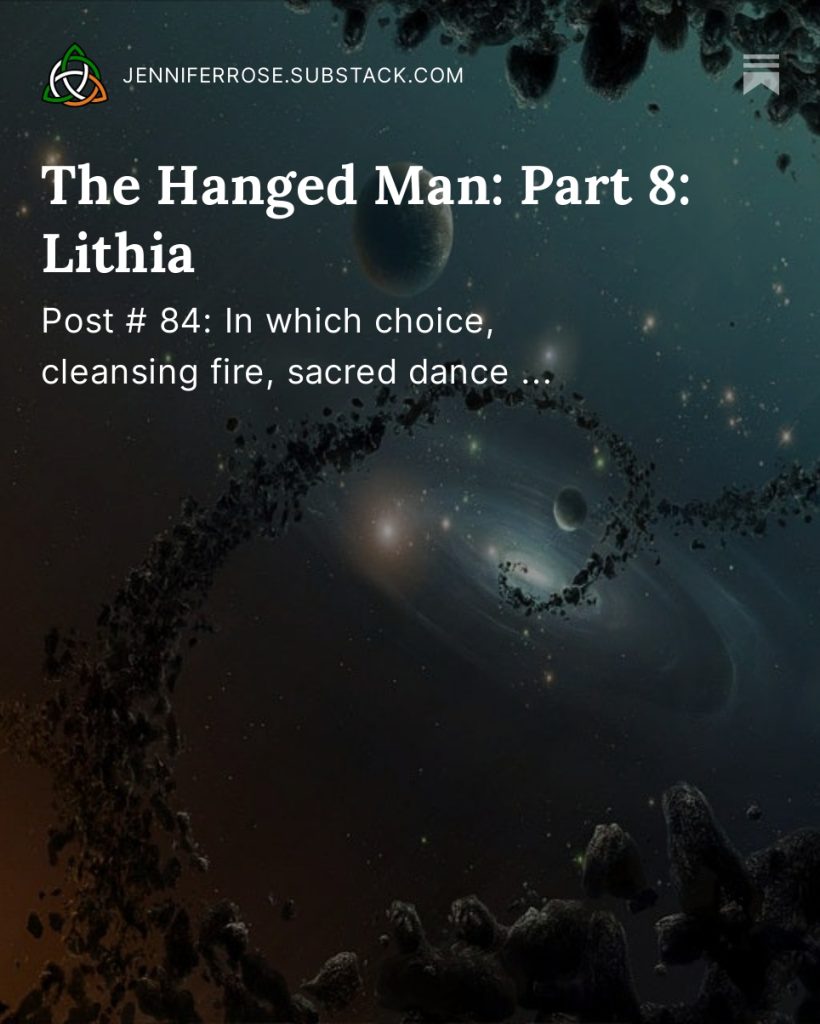by Jenny Rose | Jul 20, 2024 | A Flourishing Woman, Self-Love
The more battered I feel by the news cycle and the daily externals of my world, the more important it is to spend time in solitude, focusing inward and practicing love and trust with myself.

Photo by Cristian Newman on Unsplash
(It sounds delightful, doesn’t it? So wise and functionally adult! It doesn’t read like tears; trauma; dumping feelings onto the page; wrestling with fear, despair, perfectionism, heat, humidity, housework, and (most recently) a fiery case of athlete’s foot while the garden turns into a steaming jungle outside my locked and blinded windows and the air conditioner gently roars.)
I recently reread The Mermaid Chair by Sue Monk Kidd. I haven’t read it in a long time, but it was next on the shelf, so I cracked it open. I came across a line I don’t remember and evidently didn’t remark on previously: “…I’d never done anything that took my own breath away …”
The speaker is a middle-aged woman and that line grabbed my attention.
We are consumed by externals. The male gaze. The public eye. What others think of our looks, our words, our actions. Is our virtue signaling adequate and prominent? Are we pleasing the right people? Are we flourishing our flags with sufficient outrage and hostility? Are our masks and identities firmly in place?
The more we focus on externals, the less we pay attention to our relationship with ourselves and the more broken we become.
Why don’t we think about taking our own breath away?
This might not seem important. After all, what’s more exquisite than the feeling of being in love? The sight and smell, sound, taste, and texture of the loved one. Every expression. Every word. Every insignificant detail, past and present, is breathtaking. For a time. How could we ever hope to compete with that feeling, that excitement?
But what happens if we never take our own breath away?

Photo by Jeremy Bishop on Unsplash
Some of my favorite stories are oral tales about the selchies; creatures who are men and women on the land and seals in the sea. Most of the time the old stories are about a woman whose sealskin is stolen by a man; she is coerced into staying with him, often raising a family, with the promise he will one day return her skin. Though the captured selchie may love her children and even the man, as time passes she begins to lose her vitality and wither, for she is cut off from the sea, a part of who she is. She must have what she is made of to be whole.
As a young woman, I had no thought in my head beyond finding a husband, someone who wanted me and would love me. I didn’t think about the love I needed to feel for him; I assumed I’d do whatever it took to be a “good wife.”
Two divorces later, much older and wiser, I realize how sad this is. Now I know no child or lover, no matter how wanted or beloved, can ever leave us breathless in the same way we can ourselves. Not only that, when we rest all our being on external love, when the object of our love leaves and the feeling is gone we are left more impoverished than before, more embittered, more lost.
Taking our own breath away gives us something we never lose; amazement for our own courage, or determination, or creativity. We always remember that thing we did, and marvel at ourselves. We develop confidence and trust in ourselves. We know we can struggle through obstacles, defy odds, learn a new skill, finish a big project, or take a leap in the dark. We know we can face our own fears and beliefs, and challenge them.
I believe this is a big part of what a midlife crisis is about. If we don’t push ourselves beyond our comfort level we wake up one day bored and apathetic, and wonder if this is it. Is this all life is, the familiar round of work, home, family, and friends?

Photo by Joshua Rawson-Harris on Unsplash
We begin to think and dream about something more, that milestone we never achieved, that place we never visited, the opinion we never expressed, the art we never created, the truth we never dared tell.
We want … something. We need … something. Typically, we spend a lot of money trying to fill our craving, but nothing works for long because we’re looking for some intangible piece of ourselves, something stolen, something lost, something rejected. Perhaps we’re searching for our own permission or courage. Our quest becomes internal rather than external because (to our shame) we have a good life, a good job, a good-enough spouse or lover, a beloved child, yet we are not satisfied.
We want what we are made of.
No one can tell us what that is. No one knows. We have hidden it successfully from ourselves all our lives, after all. If we are lucky, one day we know what to do and have the means to do it. The outcome doesn’t matter. What matters is that we do it, we leap without a net, we create in a frenzy, we open our throats and speak our truth at last.
We take our own breath away.
Moving to Maine from Colorado was like that for me. How did I do it? I have no idea. I do remember my determination, though. I remember saying to myself I was going to do this thing no matter how impossible it was, no matter what others said about it (and me), no matter how many obstacles I encountered (I borrowed money from a friend for the first time in my life), no matter how terrified and anguished I was, I was going to do it. If I had to crawl on my belly all the way, I was going to do it.
And I did (in a U-Haul, not on my belly). And it took my breath away. Still does.
In general I’m a cautious, even conservative person. (In spite of my friend who affectionately calls me a dirty hippy!) I think things through carefully. I research all the options. I consider consequences. But sometimes this longing to find and express what we are made of is so strong we can’t think about it calmly and rationally. We are compelled beyond all that, pulled helplessly by the strength of our need to reclaim and express some lost part of ourselves. We don’t care about consequences. They are less important than finding ourselves.
I wonder if it’s a human need to experience this riptide at least once, to operate only on instinct, intuition, passion, and raw determination. Maybe it’s at least as important to follow our creativity and curiosity as it is to set concrete goals and make plans. Maybe the ability to be impulsive and unreliable is as important as dependability and careful planning.
In taking my own breath away, I’ve lived with a bad boy/man, had an unplanned pregnancy, and caught an STD. I’ve learned to dance. I’ve created visual art. I’ve written 2 books and started a third. I’ve become an oral storyteller. I’ve started and later redesigned my blog and published my fiction serially on Substack. I’ve moved to Maine. I regret none of these, no matter the consequences, which in some cases were painful.
What will I do next? I don’t know. But I’m not afraid to take my own breath away.
Questions:
- What’s the most breathtaking experience of your life?
- What part of what you’re made of are you longing for?
- How have you taken your own breath away?
- Who or what are you waiting for to take your breath away?
Leave a comment below!
To read my fiction, serially published free every week, go here: 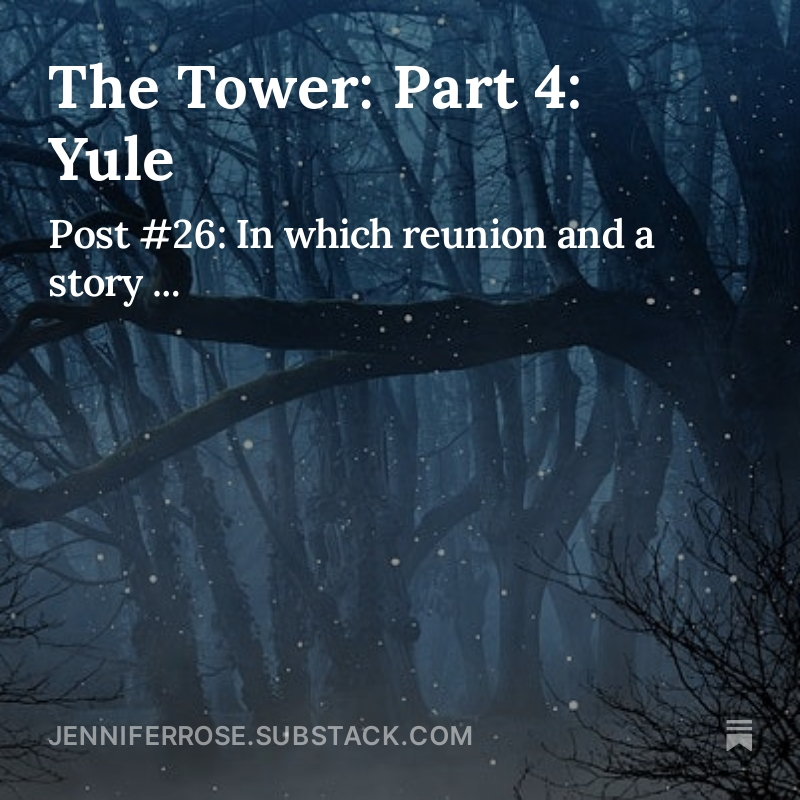
by Jenny Rose | Jul 6, 2024 | A Flourishing Woman, Spirit
Unusually, I’ve struggled the last couple of weeks to find something I wanted to write about for this post. At times I feel so heavily weighted with grief, fear, and despair about our world (and I mean our to include all people, all species, all life on this lovely, feverish planet suspended in the cool bed of space) and the apparent lack of sane, unified values and problem solving, it’s all I can do to keep putting one foot in front of the other. I’m sustained by my communities on Substack and in real life, my garden, and the simplicity of whatever moment of Now I inhabit. At this moment Now is the smell of chicken crisping in the air fryer, the cool, damp air of a July 4th morning in central Maine coming in open windows, the weight of my laptop on my lap, the feel of its keys under my fingers, and the sleeping cats. It’s a day off. I relish it.

Photo by NASA on Unsplash
I don’t want to write about the state of the world. I have nothing to add to the conversation that feels effective or positive. I’m one of the silent millions, maintaining faith and courage as best I can for my own sake as well as the sake of those around me.
Earlier in the week I received a post from Dr. Sharon Blackie titled ‘Following the Wrong Gods Home’ that caught my imagination and gave me a different perspective.
Through the fog of sadness and fear a clear question rang in my mind: what would Baba Yaga do? And another: what gods am I following, and are they taking me home? And then, I can choose which gods to follow.
Sometimes I forget that.
Just like that, I was back in my power. I jotted down some quick notes and went off to work, feeling better.
Dr. Blackie didn’t mean this question in the formal religious sense, but in the metaphorical sense. Much of what is happening in the world now has to do with the gods people create, worship and follow. Not only real people but gods like money, status, technology, and power. To them we build temples, make blood offerings and human sacrifices. We worship them with our belief and our lives and place them above the law, feeding them with power, and they are rapacious.
No wonder Justice is blindfolded. I’m in complete sympathy. We should give her ear plugs, too.
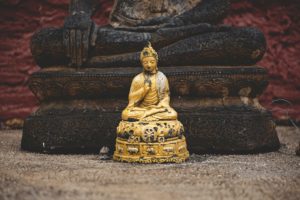
Photo by Peter Hershey on Unsplash
I think a lot about gods and goddesses. I research their stories and cultures, explore their symbols, sculptures and depictions. I write about them, dream about them, and work with various card decks referencing them. I think about our consistent human propensity to reach for something larger than ourselves, something wiser, stronger, more powerful. We seek some sense of meaning, hope there is reason for all this chaos, that one day we will come back home to ourselves and our family of all human beings on Planet Earth.
Of all the gods and goddesses I’ve made friends with, I love Baba Yaga the best. I’ve written about her before on this blog. She’s Slavic, a hag goddess associated with witches (of course).
I don’t think of myself as a feminist, but the Baba is, for me, the perfect embodiment of female wholeness. She is not obedient or submissive. She is not attached to a man. She carries no shame, no guilt. She’s wild, primal, and powerful. She has feelings and expresses them. She lives proudly in her (conventionally) hideous body. (I’m sure she doesn’t shave, trim, deodorize, make up, color her hair, do her nails or dress appropriately for her age.) She cannot be silenced. She is wise and ancient beyond wisdom and years. She does not suffer fools. She pleases only herself.
A long time ago, in an audio production narrated by Clarissa Pinkola Estes, she said women were made for times like these. I haven’t thought about that in years, but the morning I read Dr. Blackie’s post I remembered it, and I stood a little taller as I made breakfast.
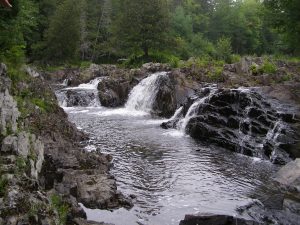
By Carmine Leo
Women, after all, know how to live in a desert. We know how to live underground. Like water, we learn how to go around obstacles and wear away stone. Women endure. We wait. We bide our time and survive. Individuals may be burned, or killed, or silenced, but collective female wisdom lives on in stories, skills and crafts, recipes, traditions and ritual. Women, as vessels of life, understand death. We know how to let die what must, even if it’s ourselves. We know endings are always beginnings.
These are not times for too-sweet maidens and princes on white horses. These are times for survival, clear seeing, hard choices, courage, cunning, and strength. These are times in which we must remember how to be responsible for our own safety, reproductive health and autonomy, and education. We don’t need permission. We don’t need approval. We don’t need men to take care of us. We’ve never needed those things; it’s time to recall and reclaim that truth and teach our younger sisters and daughters how to be wild and true.
We can always make choices. I have already left Ozymandias lying in the desert behind me. I will not follow fear and despair; they cannot take me home. I will not comply with repression and oppression, neither my own or that of others. I will not be silenced. I will resist. I will persist. I will face whatever comes with my head up. I will go around, or under, or over whatever or whoever attempts to control me.
I will choose which gods to follow home.
Questions:
- Which gods have you followed in your life? Did they take you home?
- Have you chosen the gods you follow, or were they thrust upon you?
- What sacrifices and offerings have your gods demanded of you?
Leave a comment below!
To read my fiction, serially published free every week, go here: 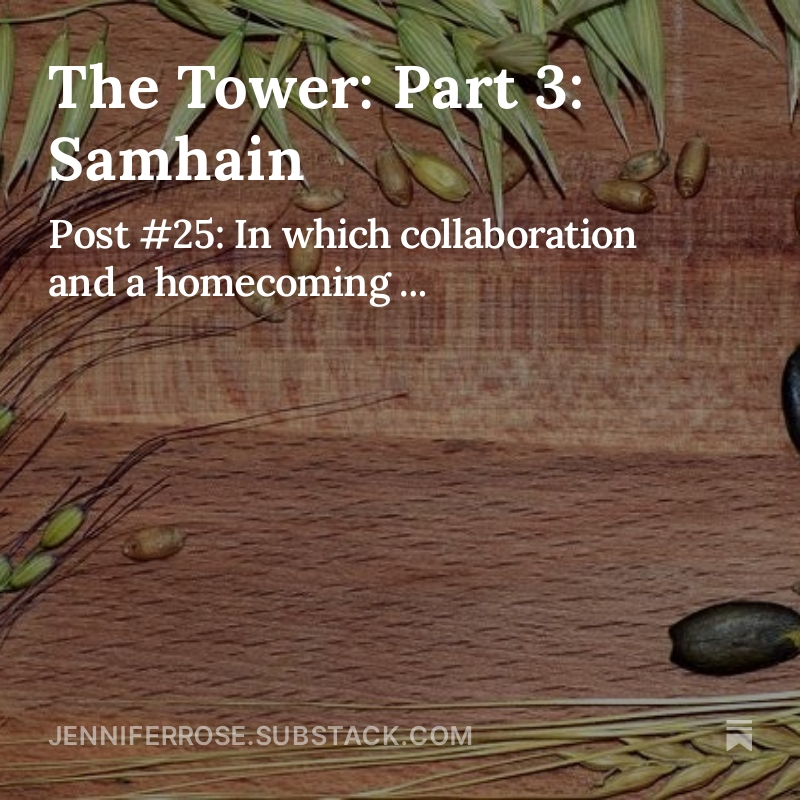
by Jenny Rose | Dec 9, 2023 | A Flourishing Woman, Creativity
Turning and turning in the widening gyre
The falcon cannot hear the falconer;
Things fall apart; the centre cannot hold.
–From “The Second Coming” by W.B. Yeats
The line “the centre cannot hold,” has been running through my mind for several weeks, through all the time I’ve been sick with COVID and whatever nasty virus followed in its wake, and my slow recovery. “The centre cannot hold.” I found a quiet moment and looked it up. I knew it was poetry, but I couldn’t remember who wrote it or what the poem was. Thank you, Google!
W.B. Yeats, of course.
I suppose it’s a common experience to feel we’ve lost our center, our groundedness, when someone significant in our life dies, as my mother just has. I’ve fought against the feeling because over the years I’ve worked so hard to individuate from my mother, to reclaim my right to center my life around something other than her. If she was not the center of my life, why do I feel things have fallen apart since she died in August?
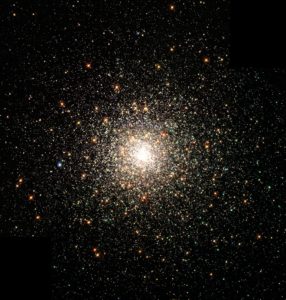
Photo by NASA on Unsplash
Did I fail to reclaim my power, define myself and my value apart from our relationship? Has all my work been for nothing? Are my healing and growth an illusion?
I have been afraid of answering these questions.
When I reread the first three lines of the poem, I first imagined myself as the falconer and the falcon as … my soul? My joy? My wisest self? My intuition? All those and none of those, exactly. The falcon seemed like a piece of myself I lost a long, long time ago when I was child, a piece I struggled through many years and miles to find and reclaim, and now is lost again. It can’t hear me, and I can’t hear it. It feels unbearable. My center didn’t hold. Why didn’t it hold? Did I do something wrong? How do I call it back to me?
And I want to call it back, not haul it back by its jesses. In fact, why is the falcon restrained at all? If it’s truly mine and we belong together, why is it leashed? The idea disturbs me. I want it to be free. I’ve worked too long and hard for my own freedom to relish restraining any other creature. I note I assume the falcon is leashed. The poem doesn’t explicitly say so. Interesting.
Maybe my assumption of leash and jesses reflects all the ways I’ve restrained myself. As a child I internalized restraint. I had to. Everyone else felt free to throw self-control to the winds. Is my feeling of my center not holding asking me to release myself further? Is it time for deeper faith and trust in myself?
As I typed those three lines onto the page to begin this post, I imagined another picture in which my mother was the falconer and I the falcon. She no longer holds the leash. I am free. I have flown away from the only center I was allowed to have and now I’m overwhelmed by my freedom. I don’t know how to be wild. I don’t know how to live without the restraining leather jesses around my slender legs. What if I can’t? What if I perish? Must I find a new falconer to hold the end of my leash? What if my freedom is a mistake and I’m not fit to be free? What if I’ve lost the ability to fly free?
Ugh. Goosebumps.
Don’t get carried away, I say to myself. Slow down. We’re talking about emotional freedom versus physical freedom. You’ve been flying in an ever-widening gyre for years.
What’s changed is that leash, woven of blood and bone and love, woven of years and empathy and need, guilt and shame and obligation, too strong to ever be severed … except, it turns out, by Death.
What do we center around?
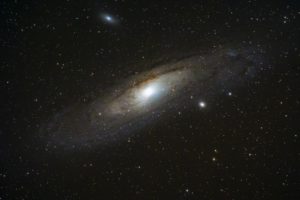
Photo by Bryan Goff on Unsplash
It changes, doesn’t it? In my first 20 years I centered around my family of origin. When I was in my 20s and beyond I centered around a man and my children. Work was in there, too. And my family of origin, particularly my mother, who was not pleased to be sharing the center. The proverbial 3-ring circus. It went on like that until my children emancipated and, to be honest, for some time after. Then, as they slowly faded out of my center, being far away and engrossed in their own lives, I centered around some man (but not the same one; I’m a slow learner) and my mother. Slowly, writing began to nudge for a place in the center as well.
This created real problems. Mom could never tolerate sharing. I was used to her competition with the kids and whatever man I was involved with but the writing would have created a real threat, so I hid it. The more I hid it, kept it inviolate and safe from outside sabotage, the more I centered around it, and the more I centered around it the more threatened she felt, though I’m not sure her reaction was conscious and she had no idea what she was fighting against. She just knew she didn’t have all of me anymore.
She was right to feel threatened, because writing eventually tore me away from her physically and geographically, a thing that had never happened before and a last betrayal she never forgave.
In the stresses and strains of the last couple of years, I lost writing out of my center. Oh, I still did it. I blogged and serial published. I journaled. But as Mom’s health and sanity crumbled, she became my center once again, this time to the exclusion of everything else. Work (generally part of the center for all of us) competed, keeping me sane, physically fit, and anchoring me into a community of friends, but Mom once again became the primary gravitational pull in my center. My days and nights were full of her. I had less and less respite and the intensity increased daily, winding around my life more and more tightly, and then …
She died. In the middle of the night, a night in which I lay awake in Maine while my brother sat vigil with her halfway across the country in Colorado.
When I write it all out like this, I can understand why I’ve felt so dazed. I can feel some grace for myself.
The one thing that’s always been in the center is gone.
“The centre cannot hold …”
Being too old to have any desire to put a man back in the center (been there, done that), and loving my job while realizing it’s not big enough to define me, I turn once again to the truest, most joyful, wildest part of my life: writing.
And that’s scary. If I let writing take all the space, time and energy in the center, what will happen? I don’t even make money with it!
I make joy with it instead. Joy, connection, contribution, authenticity. Writing is not a black hole of failure. It does meet my needs. When I write, I actually feel good enough and sometimes even better than that! No wonder I feel bewildered.
As I write this, it occurs to me for the first time to not only allow things to fall apart, but to participate actively in the falling away and, falling down. To dance in the ruins, even as I weep. I’m reminded of a Rumi quote:
“Dance, when you’re broken open. Dance, if you’ve torn the bandage off. Dance in the middle of the fighting. Dance in your blood. Dance when you’re perfectly free.”
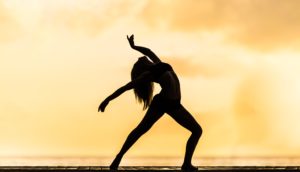
Photo by David Hofmann on Unsplash
Things fell apart. The center did not hold. Change, in other words. Life. Which is to say Death.
So, an unexpected ending to this post. Things are falling apart. I’m ready to stop trying to hold them together. It’s time to let go. Mom already has. Now it’s my turn. What lives in our center changes as we change. It’s time now for me to choose my center, choose it freely without guilt or shame.
Sometimes things fall apart and the center cannot hold.
So we find a new one.
Questions:
- What’s in your center?
- If you were free to choose your center, what would you chose?
- How many things compete for your center? Could you reduce the gravitational pull of your center?
- If your life changed in some dramatic way and you were forced to find a new center, how would you go about doing that?
- Is your center all about others, or do you have something there for yourself, too?
Leave a comment below! To read my fiction, serially published free every week, go here: 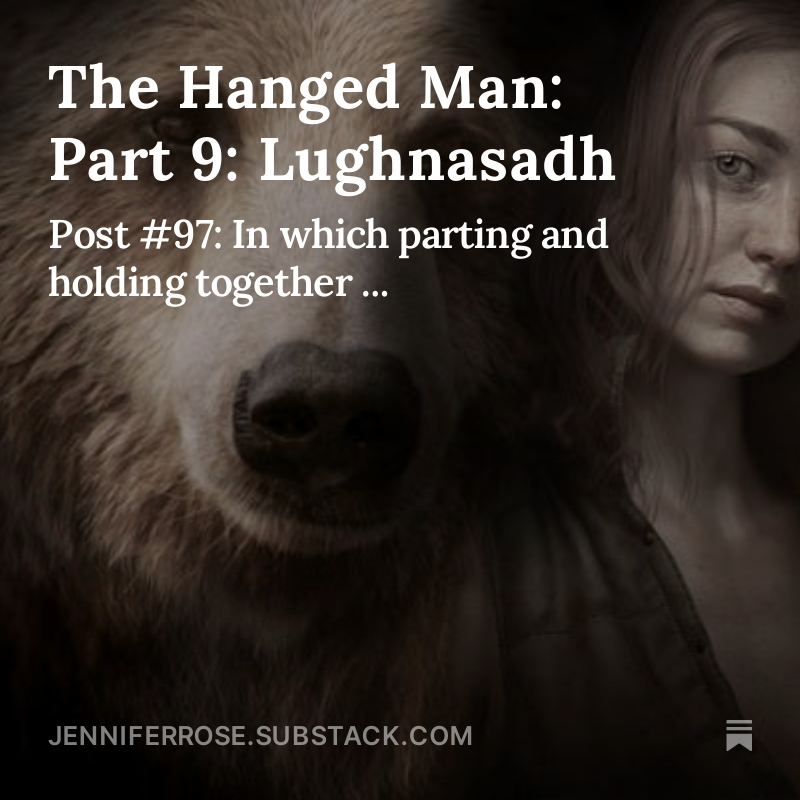
by Jenny Rose | Sep 23, 2023 | A Flourishing Woman, The Journey
Today is Mabon. My calendar informs me it’s my weekend to post on Harvesting Stones. Some weeks I’m all ready to go and need do nothing more than push the publish button. This week these are the first words I’ve written, sitting here on my little porch on Saturday morning watching the clouds tatter before the morning sun.
Mabon, or fall equinox, is the balance point during which the hours of daylight and darkness are equal. It mirrors spring equinox and falls between winter and summer solstice. Fall is my favorite time of year, and this fall I’m in the midst of profound transformation. It’s a harvest season like no other in my life.
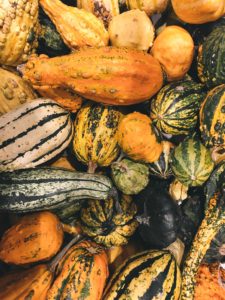
Photo by Brigitte Tohm on Unsplash
Sometimes we are so swept up in the tides of life and death we can do nothing but keep breathing. Days fall away from me, hours drift by and disappear without my awareness. I am focused on the next task, and the next. At the end of each day, I cross to-dos, questions, concerns off my lists, make notes for the next days and weeks, and fall into bed before rising at 4:30 or 5:00 to begin again.
In the midst of the chaos, I remember I choose my life. I’m getting better at just stopping.
Stopping.
I have before me a weekend. Mabon, 2023. It will never come again. A hundred tasks to do. A hundred things to worry about. A hundred choices to make.
Mabon is about balance. Action balanced with rest. Complexity balanced with simplicity. Fear balanced with confidence. Work balanced with play. Grief balanced with joy.
The light; the growing season; the summer of hospice, anguished love, extra caregivers, demented phone calls, medication lists, and, finally, my mother’s death, wane. Trees retain their leaves, but summer’s fierce green fades, bronzing, drying. Sedum and chrysanthemums bloom in the garden. A few sunflowers still flower among the ripening seed heads of their fellows.
Mabon. Balance. And I, a creature, a life among so many other lives, what can I say about it? How can I talk about balance when it feels so far from reach? How will I find balance again on the other side of transformation?
What I hold are impressions, vivid moments of mindfulness and sensuality, unexpected emotions, and the determination to cling fast to myself as autumn rip tides carry me where they will. For I am here, alive, curious, creative, awed, grateful, terrified.
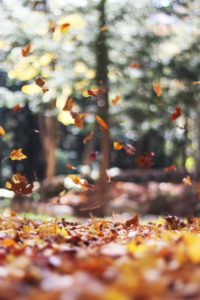
Photo by Autumn Mott on Unsplash
I’m rereading Susan Fletcher, a favorite author. I just finished Oystercatchers. On the last page, this: “You’re this: an onion bulb. The glint of a rabbit’s eye. The clicking of a beetle’s legs on a leaf; the leaf’s brown edge; dandelions; a pebble; windfall fruit.”
I read no more; I was crying too hard.
My mother is always with me. She has always been with me. My blood, my bone, my sculptor. Now, her death is with me, too, and her dying. Grief has not come to the front door, which I’ve left ajar in anticipation of its coming. It’s crawled through cracked windows, slipped through old screens long-dead cats tore with their claws. It’s drifted down the chimney, come up through gaps in my old wood floor from the cellar, crept along the copper radiator pipes, cool now, but soon to be warming.
I carry bewildered pain within me, like a ripe nut in its shell. How does it happen that a human being, intelligent, talented, competent, with so much to give, can have no feel for life? How can anyone refuse to engage with the mystery, the glory, the terror, the sweetness, and yes, even the pain of what it means to be alive, to love, to be broken and heal over and over?
Isn’t it strange that I find her in the small delights she herself would never have recognized as sustenance, as miracles? Something in Mom was too blind or too broken or perhaps too frightened to allow life to clasp her in its arms. Something. We could never talk about it. I knew it was there, but she would not reveal even the edges of her true experience.
In the end, as the fogs of dementia surrounded her, she was at last able to say she loved me. I have that, at least. And yet, she was demented … But I choose to believe.
Mabon, then, is the autumn garden. Planting blue and white grape hyacinths in drifts with daffodils under the magnolia so in spring they will bloom and naturalize as the seasons come and go. Shoveling and spreading compost mixed with aged cow manure, rich with earthworms and beetles. Pruning, trimming, prying weeds and grass out of cracks in the sidewalk and driveway. Disturbing our small brown toads as I weed and clean up debris in readiness for the blanketing fallen leaves. Dividing and transplanting. Spider webs jeweled with dew. Chilly mornings and gorgeous afternoons. The smell of my catnip, ecstatically trampled and chewed, no doubt discovered by the neighborhood black cat, Winston by name. Planting a few end-of-season sale perennials from our local greenhouse: lavender, black-eyed Susan, sedum. My garden manicure of dirt ground under my fingernails and into my cuticles, always dry and ragged from so much time in the pool. It won’t scrub away, but it will soak off in the pool during my next lesson. Peeling skin and blisters. Bruised knees.
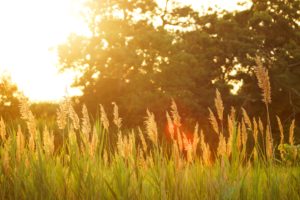
Photo by Dakota Roos on Unsplash
Mabon is the early morning mist rising from the Kennebec River three or four blocks away. It moves up from the surface of the water, along the dark, early-dawn streets and walkways, enveloping the trees, rising to hide the church spire and then gently dissolving as the sun rises while the crows call and the neighborhood rooster announces the dawn.
Mabon is the taste of Apple Pie Chai (Republic of Tea) with a dollop of half n’ half in it, as delicious as it sounds. It’s scented candles burning in the first hours of my day as I journal, make lists, think about the day ahead. Orange, red, and golden candles – orange and spice, apple and cinnamon, sandalwood. One of my closest friends says sandalwood is a “dirty hippy smell.” The thought makes me smile every time I light it. The apples and cinnamon candle sputters companionably because it has a wooden wick (Book&Reverie candles on Etsy).
Mabon is linen sheets dyed a glorious old gold on my bed, textured, heavy, luxurious. It’s socks and sneakers instead of my Keen sandals. It’s my heavy grey shirt jacket with a Buff bandana or a scarf.
Mabon. The Wheel of the Year turns. Seasons and cycles. These things remain. These things are predictable, comforting. They sustain me.
This year, Mabon is also a blizzard of what feels like endless documents, digital, paper, filed away, stacked on my desk, put into binders, stored on USB sticks. Soon, Mom’s house in Colorado will sell, the requisite paperwork will be filed for tax preparers and other legalities. Printing and scanning, FedEx drop offs, notarizing, will eventually be complete. The business of opening accounts with a new bank, obtaining new cards and checks, changing automatic payments and direct deposits, connecting to other accounts, will be finished. Insurance, retirement accounts, paying off debt – all will be managed. I will create new systems, effective and simple.
This week my nearly 20-year-old Subaru failed to pass inspection. I can’t understand it. The driver’s side door handle still works; I don’t really need the others. It drives. I don’t need AC or an audio system. I can manage without being able to open the back hatch. The heat and defrost work if I put in the fuse, and the battery is good as long as I don’t leave the fuse in when I park it. I know exactly where to bring my fist down on the hood when an ice storm seals it shut and I need to open it and put the fuse back in.
It needs $3000 of work. It’s worth $1100.
I need a new car. More tasks. More paperwork. Insurance. Registration.

Photo by Nathan Dumlao on Unsplash
These things, the documents, the tasks, the paperwork, phone calls, texts, emails, are nothing but the chrysalis of transformation. I know it. I feel stressed and overwhelmed much of the time, frustrated by delays, miscommunications, jumping through legal and bureaucratic hoops. It’s all temporary, though. It will fall away, along with the autumn leaves. The chrysalis will shred in the dark winds of late autumn and winter, this rip tide will release me, and then … something new.
Through it all is my mother. My memories of her. The pain of my love for her. I’ve inherited so much more from her than assets. There is some comfort, some strange, painful comfort, in remembering to pause. To choose. To stop. To be touched, broken open by the small daily beauties and comforts of life. The taste of creamy tea. The scent of sandalwood. The texture of rich soil. The late copper and garnet blooms of mums. The mist rising into the sun’s golden warmth. Most of all, the painful risk of loving friends, family, the world, life.
Look, Mom. See the little toad? Let’s put him here, under the rhododendron. Remind me to buy toad houses.
To read my fiction, serially published free every week, go here: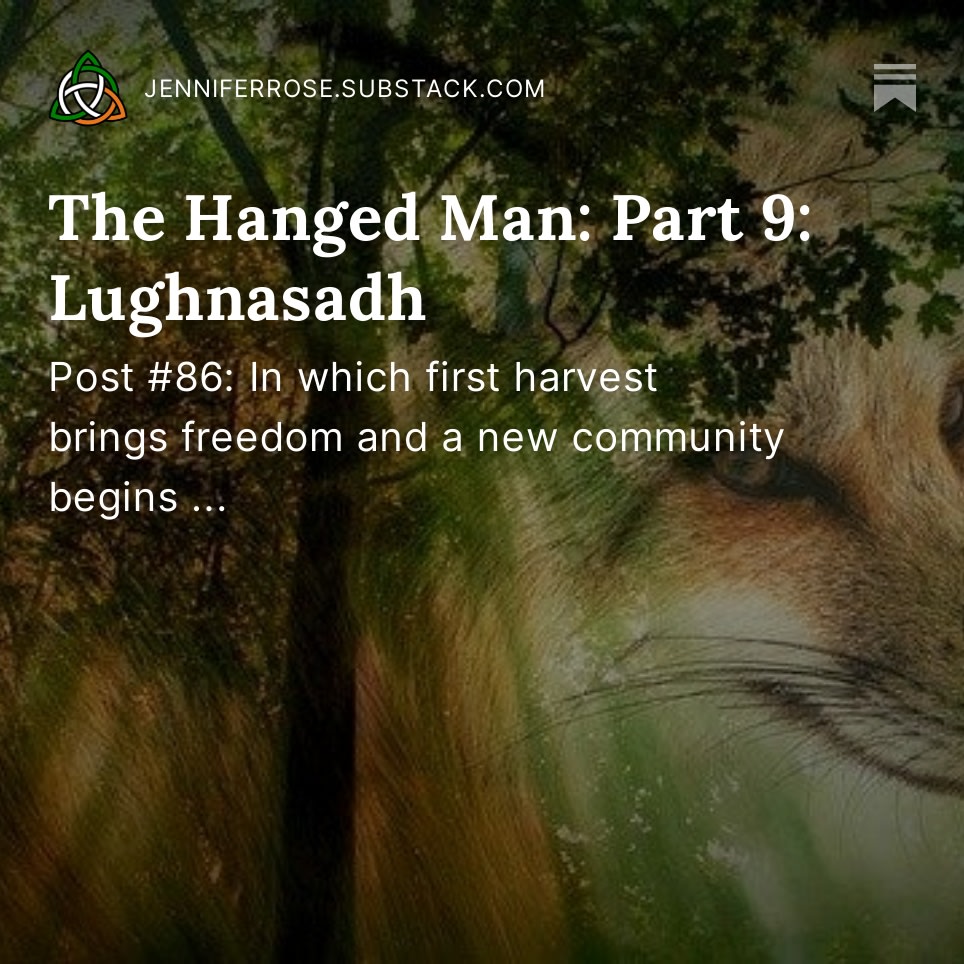
by Jenny Rose | Sep 9, 2023 | Choice, Power
I’m a spinner, a speeder, a thought racer. (Yes, I know it doesn’t help. I know rocking chairs and hamster wheels go nowhere. I know worrying is pointless.) Under the right conditions, the inside of my brain is like a dusty attic filled with hysterical cats zooming in all directions, climbing the walls, knocking over piles of junk, filling the air with dust and yowls. Chaos. Destruction. I call it speeding. I call it anxiety. The world calls it racing thoughts.
Whatever we call it, it’s a miserable state of mind, and a common one.

Photo by Quino Al on Unsplash
Herding cats, as any cat lover will tell you, never works. Sheep, maybe. Cows. But not cats.
However, at times familiar life goes off the rails in such varied, complex, and unforeseen ways I find myself once again herding cats, usually during the hours I need to be sleeping, though sometimes those hours bleed over into days when I’m supposed to be focusing. On something productive or something relaxing or something. But all I’ve got are catapulting (pun intended) thoughts and emotions racing around in my brain.
Not long ago, before the start of my current cat rodeo, I read somewhere (probably Substack) about The Rule of 9s. I’ve since gone back to look for it, but I can’t find the original source. Anyway, I didn’t come up with it myself. I wish I had.
The Rule of 9s is a tool used to identify what really matters. Or, if you like to look at things bass-ackwards, like me, what really doesn’t matter.
This morning, for example. I could garden, work on business at my desk, write, or make a Spotify playlist. I have just under two hours at my disposal before I head off to work.
I have a lot of desk business just now as my brother and I (mostly my brother) wind up my recently deceased mother’s estate and deal with our inheritance. By inheritance, I mean not just assets, but the inevitable emotional inheritance we all receive from our families of origin. What I’ve heard is true. When a parent dies, we cannot be prepared for the ways it changes us and how uncomfortable some of that change is.
My metaphorical cats – these mixed up thoughts and feelings — pull me in different directions at the same time. Everything feels overwhelming right now. It’s irritating. Two items on my grocery list and I’m overwhelmed. Now and then I have a few minutes free from the inundation, but I get a call, a text, another document to sign, and I’m overwhelmed again.
Fortunately, I just learned The Rule of 9s.
So, the option of gardening. It’s hot outside. Really, really hot and humid. Just when the weather should be getting crisper and cooler, a heat wave has arrived. It will ease in the next couple of days, but it’s brought a resurgence of mosquitoes and it’s not fun to be outside. So, no garden this morning. I’ll wait for cooler weather. Is that a crisis?
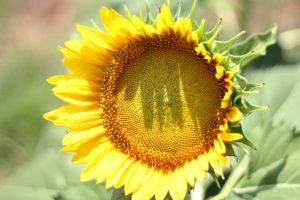
Photo by Morgan Sessions on Unsplash
Will gardening or not gardening matter in 9 seconds? In 9 minutes? In 9 hours? In 9 days? In 9 months? It might start to matter then, because I’ll be making spring plans and whatever progress I make this fall will affect those plans. But it’s clearly not urgent. I won’t remember choosing or not choosing gardening today.
Business at my desk. I’ve already done some of that this morning. Balanced the checkbook. Looked for a document I’m waiting on from my bank (not there yet). Made some notes. Did some planning. Considered options. I have money in my account. All the bills are paid. I don’t need to spend anything today. Will taking care of more business or not taking care of more business matter in 9 seconds? Nine minutes? Nine hours? Nine days? It might start to matter at that point, as one thing leads to another as we wade through this process. If I stay on top of tasks, step by step, I know I’ll eventually come out of the tunnel with effective systems in place that work for me and respect my goals and values. Tempting to start herding the cats quivering on my desk, but I only have two hours and nothing is urgent.
Make a Spotify playlist. I may shortly have an opportunity to bring a dance program to the community. I’ve tried several times in years past without success, but I haven’t given up hope. Now that I’m on Spotify (though I have misgivings about how platforms like this fail to support artists), I wanted to get a few of my dance playlists put together. I have them burned onto CDs and in iTunes, but not on Spotify. However, I don’t have any solid dates for dance now. It’s all in the planning stages. At some point it will matter, but not right now.
Writing. It’s my weekend to publish on Harvesting Stones. I don’t have to. It’s not required. But I’d like to, if for no other reason than it’s my usual routine, a stepping stone in the current chaos, and it comforts me to be doing something normal. Not to mention how much I enjoy it. Hard to think about focusing on it, though. All those cats whizzing around …
Will writing or not writing matter in 9 seconds? Nine minutes? Nine hours? Nine days? It won’t matter to the world, but it matters to me. It will matter to me in two days, when Saturday morning comes and I either do or do not have a rough draft I’m happy with.
So I’m writing. And while I’m doing that, miraculously, the other cats settle down. Tired, I guess. Maybe they’ll curl up in the chaos they’ve wrought and sleep a while. Sleep is good.
As I live my life and listen to the inside of my head, especially the anxiety, the fear, the resistance, the catastrophizing, I pull out The Rule of 9s and apply it. Will this matter in 9 seconds? In other words, will I die in 9 seconds if I don’t do whatever-it-is or figure it out, completely and perfectly? How about in 9 hours? (Have you ever noticed how crazy your nighttime I-can’t-sleep thoughts are in the light of day?) In 9 days will I even remember whatever feels stressful this minute? Will the fearful thing I can imagine happening be important in 9 weeks? In 9 months? In 9 years?
The Rule of 9s requires I slow down and think. The questions give me perspective, help me with a reality check. I stop reacting and remember my power to choose. I decide what’s more important than my peace of mind (not much). Hysteria is contagious; so is calm.

Photo by Ryan Moreno on Unsplash
Applying The Rule of 9s settles the cats right down. One or two may still zoom, because cats are contrary like that, but the chaos diminishes as I become intentional and mindful. I can find some focus, at least for a few minutes. I know what to do next, in the next 9 seconds, anyway. The next 9 years can take care of themselves.
Questions:
- What are your strategies for pulling yourself out of racing thoughts and anxiety loops?
- How do you choose priorities?
- Is your experience one of choice in life, or one of reaction and compulsion?
- Share something ridiculous that’s kept you up at night.
Leave a comment below!
To read my fiction, serially published free every week, go here: 